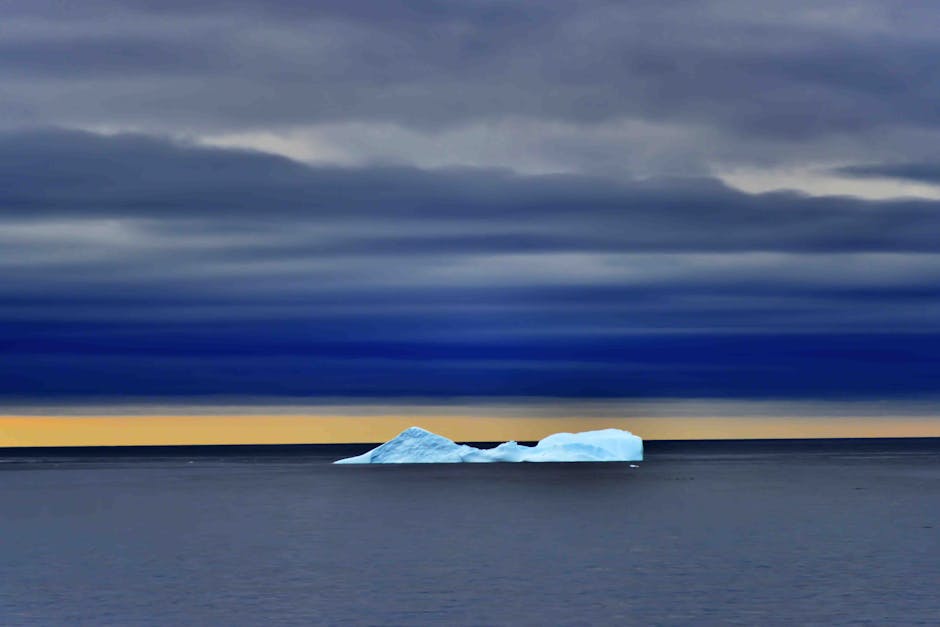The global ocean, a vital component of the Earth’s climate system, is increasingly responding to the escalating effects of human-induced climate change. This pervasive warming trend, coupled with other anthropogenic stressors, is profoundly impacting marine ecosystems, altering species distributions, disrupting ecological interactions, and jeopardizing the long-term health and productivity of the oceans. Understanding these multifaceted impacts is crucial for effective conservation and management strategies.
A principal concern is the rising global ocean temperature. Warming waters directly affect numerous physiological processes in marine organisms. Coral reefs, renowned biodiversity hotspots, suffer from coral bleaching, a phenomenon triggered by elevated water temperatures. Stressful thermal conditions cause corals to expel their symbiotic algae, leading to their pale, bleached appearance and, if prolonged, their demise. This coral bleaching event has cascading effects on entire reef ecosystems, impacting fish populations, invertebrates, and the broader reef community that relies on these structures for shelter and food. Similarly, temperature fluctuations can affect the metabolic rates and growth patterns of various marine organisms, including commercially important fish species.
Beyond temperature, changes in ocean chemistry represent another critical aspect of the climate change impact. Increased atmospheric carbon dioxide is absorbed by the ocean, leading to ocean acidification. This process lowers the pH of the water, hindering the ability of marine organisms, particularly those with calcium carbonate shells or skeletons, such as shellfish, corals, and some plankton, to build and maintain these structures. This disruption in their skeletal development can impact their overall health and survival rates, further threatening the stability of marine food webs. The ramifications of acidification extend throughout the food chain, potentially impacting predator-prey relationships and the productivity of key organisms that form the base of these food webs.
Sea level rise is yet another consequential effect of climate change, contributing significantly to the stress on marine ecosystems. Coastal flooding, erosion, and saltwater intrusion into estuaries and mangroves lead to habitat loss and degradation. These vital habitats, nurseries for many marine species, are particularly susceptible to these changes, affecting juvenile fish, shellfish, and other organisms critical for the long-term sustainability of these populations. Furthermore, the intrusion of salt water into freshwater systems can disrupt the delicate balance of freshwater ecosystems, impacting both marine and freshwater organisms alike.
Ocean currents, the lifeblood of the global ocean, are also being modified by climate change. Alterations in ocean currents affect nutrient distribution and upwelling patterns, which are essential for marine productivity. Changes in these patterns can influence the distribution and abundance of phytoplankton, the foundation of most marine food webs. Reduced phytoplankton productivity translates to reduced food for other organisms, potentially leading to trophic cascades and ecosystem-wide consequences. Furthermore, alterations in ocean currents can also shift the distribution of marine species, potentially leading to competition for resources or disrupting established predator-prey relationships.
Marine ecosystems exhibit variable responses to climate change, reflecting the complexity of their interactions and adaptations. Some species may be more resilient than others, while others may be forced to migrate to more suitable environments. Changes in the distribution of species can disrupt the delicate balance of interspecies interactions, influencing their prey-predator dynamics. Some organisms may exhibit phenotypic plasticity, adapting to changing conditions through physiological or morphological changes. However, the speed and magnitude of climate change challenges the capacity of many species to adapt, leading to localized extinctions or population declines.
Coastal ecosystems, including salt marshes, mangroves, and seagrass beds, play a critical role in mitigating the effects of climate change. These ecosystems act as natural buffers against coastal erosion, absorb excess carbon dioxide, and provide crucial nursery habitats for numerous marine species. Protecting and restoring these coastal ecosystems is crucial for the long-term sustainability of marine life in the face of climate change. Moreover, the preservation of ocean-based habitats and conservation of marine biodiversity are paramount to mitigating future climate-related impacts on the ocean environment.
Current research endeavors are meticulously investigating the multifaceted impacts of climate change on marine life. This research explores how various species are responding to environmental alterations and the potential for adaptive strategies in the face of changing conditions. Monitoring programs track the distribution shifts and population trends of key marine species, providing invaluable insights into the ecological consequences of climate change. Moreover, predictive models are used to project future scenarios, enabling informed decision-making to mitigate the negative effects and conserve marine resources.
The comprehensive understanding of climate change’s influence on marine life demands integrated research and collaborative efforts across diverse scientific disciplines. Collaboration between marine biologists, oceanographers, climate scientists, and policymakers is essential for developing effective conservation strategies and management plans. Preserving the health and resilience of the ocean is paramount, recognizing the interconnectedness of marine life and the crucial role the ocean plays in supporting life on Earth. Sustainable practices, including reducing greenhouse gas emissions, protecting marine ecosystems, and promoting responsible resource management, are vital for mitigating the impacts of climate change on the intricate tapestry of marine life. The future of marine life hinges on our collective commitment to a more sustainable future for the oceans.






